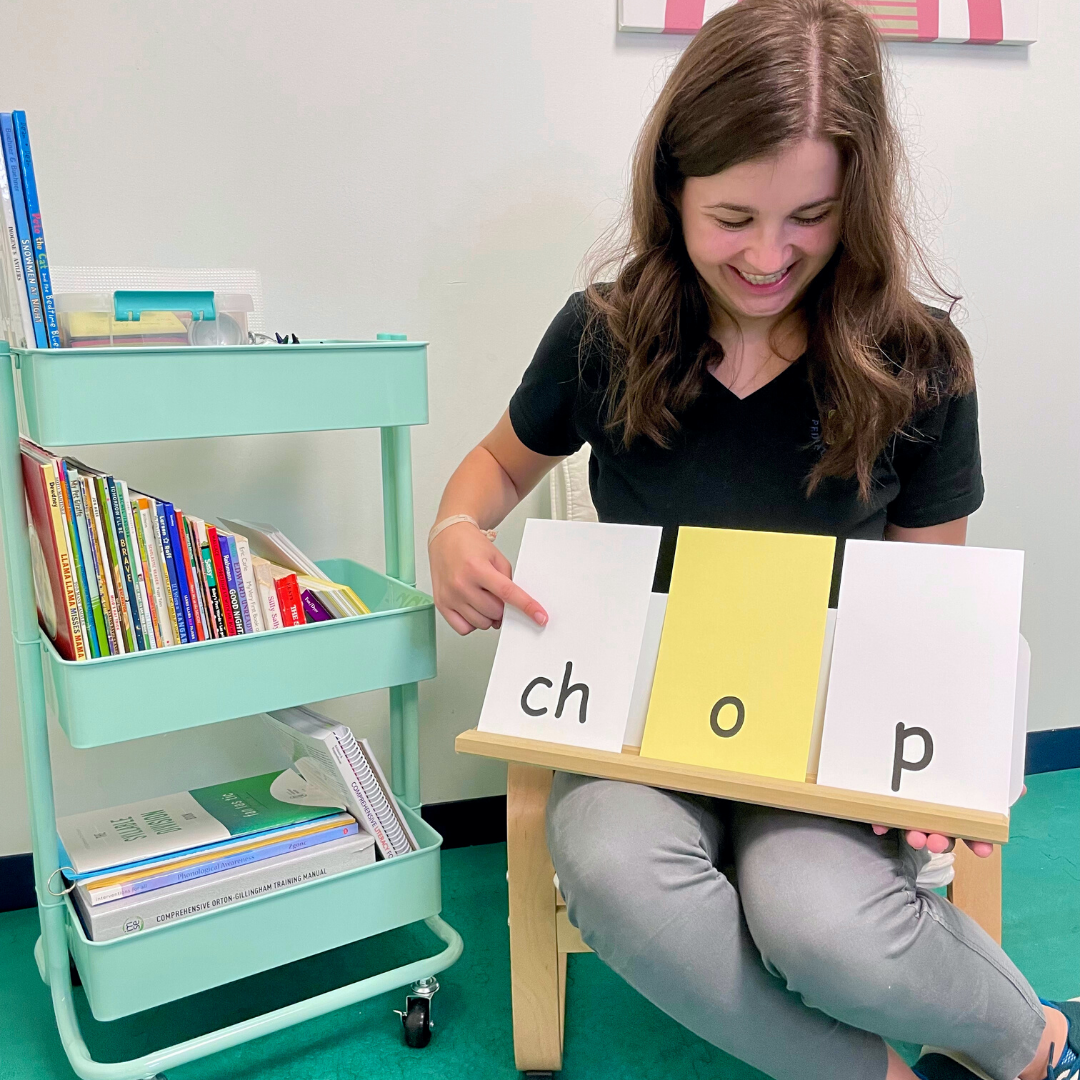Reading Services
Speech-Language Pathologists have extensive knowledge of and experience treating many challenges related to development of reading accuracy, fluency, and comprehension, including:
- Language and its subsystems, including phonology, morphology, syntax, semantics, and pragmatics
- Phonological Awareness, such as rhyming, alliteration, blending, and segmenting
- Speech-Sound Disorders
- Higher-order thinking skills
Reading disorder frequently co-occurs with other neurodevelopmental disorders, including Attention Deficit Hyperactivity Disorder (ADHD), Autism Spectrum Disorder (ASD), anxiety and depressive disorders, and conduct disorders. Speech-Language Pathologists have received extensive training in working with individuals with a range of needs and comorbidities.
What does a reading session look like at Emerge?
Each session will start with visual and auditory/kinesthetic drill of previously taught concepts in order to support memory and automaticity. Then, your child will be taught a new concept and practice knowledge and application via personalized multi-sensory experiences, reading, and spelling activities.
When your child starts reading sessions, they will be provided with a take-home folder and “tool kit” to assist with daily at-home practice. You will be provided with a script and list of tips for supporting your child.


Here are some red flags for early reading development:
- Trouble rhyming
- Trouble clapping syllables
- Trouble determining what sound a word starts with
- Trouble remembering letters and their sounds
- Avoids reading
Common reasons for seeking support:
- Your child dislikes reading and avoids it
- Your child has trouble recognizing sight words
- Your child has difficulty sounding out and blending new and familiar words
- Your child has difficulty segmenting and spelling new and familiar words
- Your child has difficulty understanding and participating in sound games that include rhyming, alliteration, and syllable clapping
- Your child has difficulty answering comprehension questions about an oral or written passage
- Your child sounds stilted with little variation in their intonation

Related Videos
Related Blog Posts
Learn More
Websites and Online Articles
Tools and Materials
As an Amazon Associate we earn from qualifying purchases.










